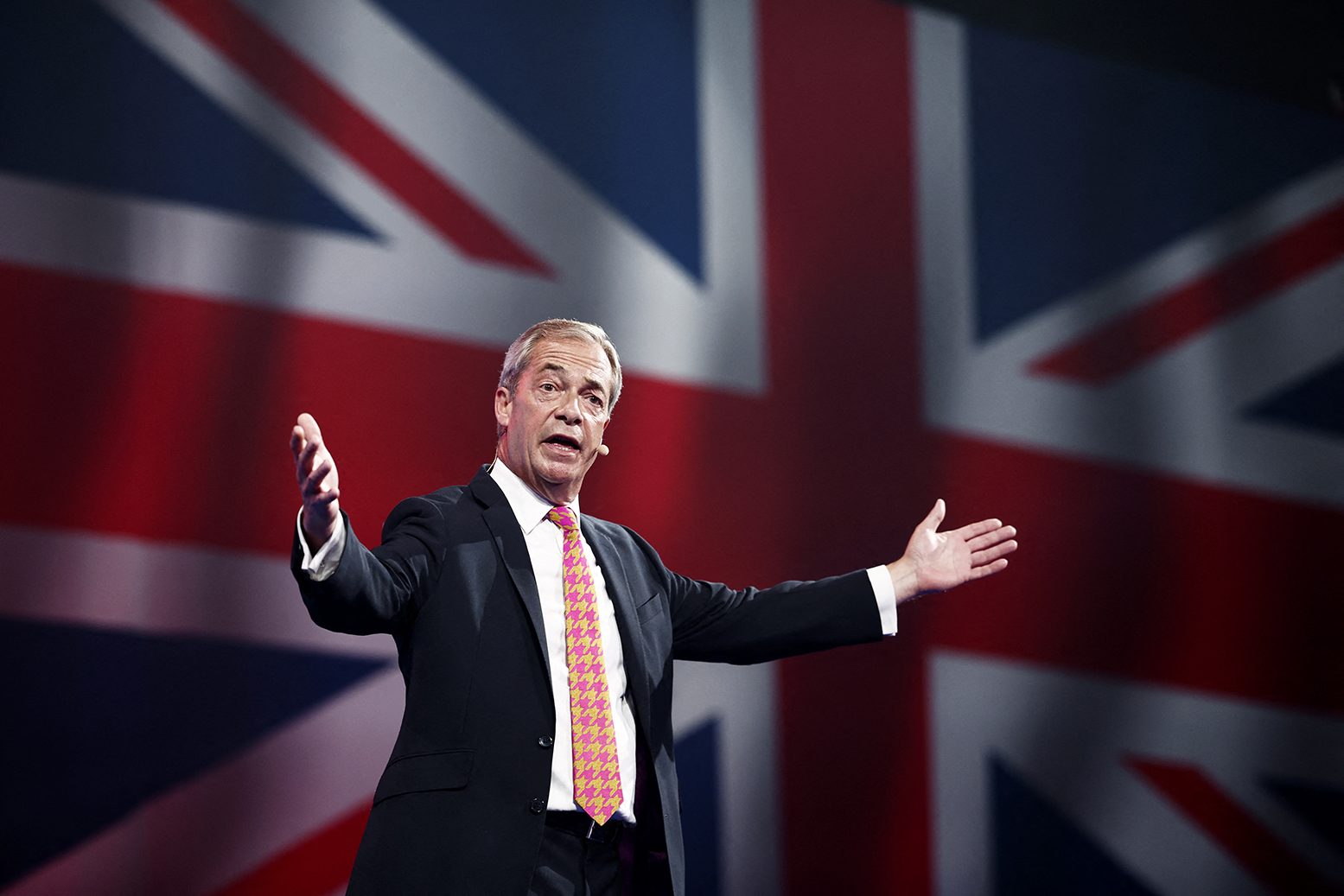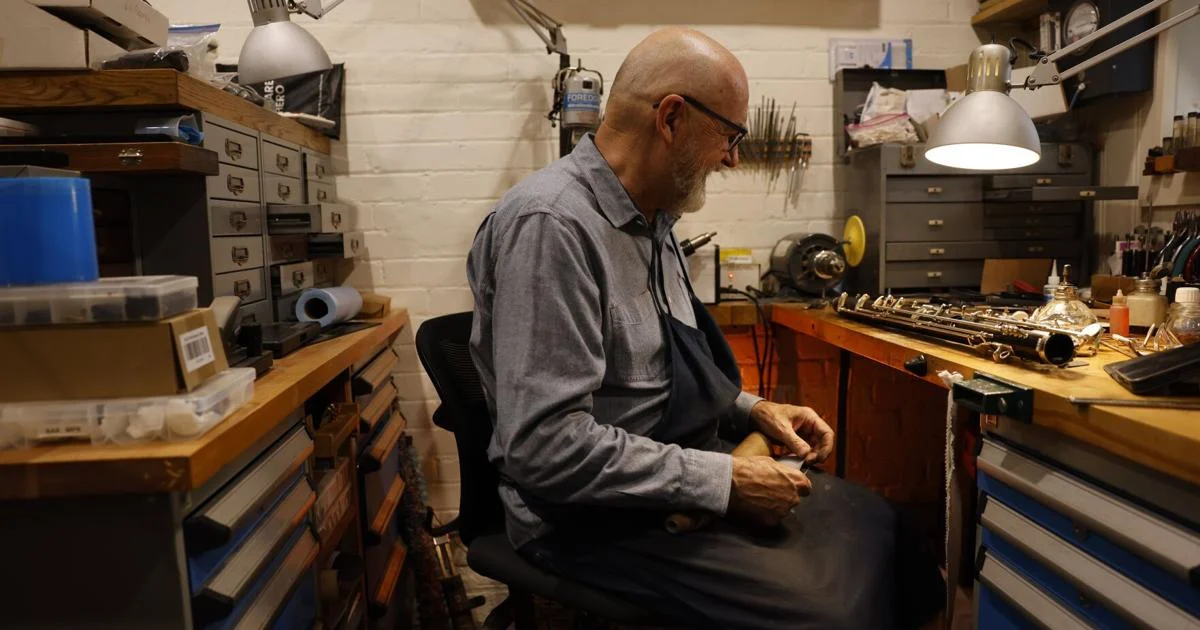Copyright newstatesman

Nigel Farage’s choice of Millbank Tower as Reform’s campaign centre is ominous. It was from this Westminster HQ that Tony Blair ran his 1997 and 2001 election campaigns – and where David Cameron won in 2010. After leading the last 150 opinion polls, the prospect of forming the largest party after the next general election has brought a certain un-Farage-like seriousness to the Reform operation. The burden of expectation is demanding new qualities: message discipline, policymaking and media monitoring. The work is tiring, but Farage’s inner circle has developed a few games to release the pressure. They entertain themselves in the office by trawling columns from hostile journalists for a sentence of praise. Then they mock the quote up as a Reform graphic and post it to their X feed, tagging the journalist with a thank-you message. Writers at the Guardian, the Independent and the i Paper have all been recently joshed in this way. To counter claims that Farage is an absentee MP, his closest aides developed a tracker monitoring the Commons votes he has participated in since being elected. Currently, he is ahead of Kemi Badenoch, Westminster SNP leader Stephen Flynn, and Keir Starmer. They believe the tracker will provide a good opportunity to embarrass Badenoch if she goes on the attack. They are both cautious of hubris – any talk about who might take what role gets a superstitious hush – and giddy at the prospect of power. There is already talk of giving parliament’s bars 24-hour licences on the first day of a Reform government. Faced with one “moonshot” at becoming prime minister, Farage’s work ethic is intensifying. He usually goes to bed at midnight (after a boozy dinner, often with objects of political cultivation: donors, defectors and the like), then rises at around 5am to begin again. Those around him reckon his capacity to withstand hangovers is growing rather than diminishing with age. Farage believes the national crisis is great enough to warrant what Reform convert Danny Kruger is calling a “conservative revolution”. And what plans they have: Kruger and outside experts are drawing up legislation in advance which will be open to scrutiny before an election (an inoculation against claims Reform doesn’t have a mandate for its revolution). After rolling back various pledges in a 4 November speech on fiscal credibility, Farage refused to say who would be his chancellor. I’m told that’s because he is still hiring and the Reform cabinet will be unveiled much closer to the next general election, in a week-by-week rolling barrage. Few of them will be recognisable politicians, but instead experts in their field. Farage, who has come to the Commons late in his career, does not understand why having a parliamentary seat is sufficient qualification to be a secretary of state. He will contrast his chosen candidates with the drab green benches of Labour and the Tories. You might rightly detect a hint of Maga here, as Trump prefers to appoint old business friends to cabinet posts. The House of Lords will prove useful for such appointments. Here is the “conservative” bit of the revolution. While he once wanted to abolish the Lords, Farage now sees it as an important part of his plan for government. Likewise, Reform’s previous support for electoral reform has dimmed. If they can step over the corpse of the Tory party and get over 30 per cent of the popular vote under first-past-the-post, the Commons will be theirs for the taking. Much of the revolution would be directed at the civil service, which is to undergo its biggest transformation in a century. Major buildings would be sold and staff numbers cut significantly. The cabinet secretary will be tamed. The triptych leading the party’s intellectual development are Farage, Kruger and Zia Yusuf. Richard Tice is the spokesman. Lee Anderson has led on “common sense” issues like Personal Independence Payment. A new research department modelled on the Tories’ own will bring in young political talent. Sarah Pochin, meanwhile, has frustrated the team after her racist outburst; questions about her remarks swallowed up Kruger’s first media round as a Reform MP. A party figure told me there is anger both because of the unnecessary row and because they believe what she said was wrong. It’s suggested that, had two MPs not already been suspended this year, she may have faced more severe punishment. Senior Reform figures have also started studying the No 10 press operation to consider who might fit as Farage’s political spokesperson. Two criteria are being considered: they must have broadcast media experience and they are likely to be female. This would be “disarming” in the face of a hostile press, one source said. I’m also told that lobby briefings, the twice-daily closed-door Q&A sessions between reporters and the PM’s representatives, would be live-streamed to the public. That sounds a bit like the White House press secretary’s office under Trump-pick Karoline Leavitt. In a short walk around Westminster it is possible to trace Farage’s path to this point, where real power seems possible. On Horseferry Road, you can still see the massage parlour above which his Brexit Party had its offices back in 2019. Back then he caved in, standing down in hundreds of seats to make way for Boris Johnson as PM. Now, around the corner from Millbank Tower, with views across Westminster, he is bowing to no one. [Further reading: Does Reform already have more members than Labour?]



